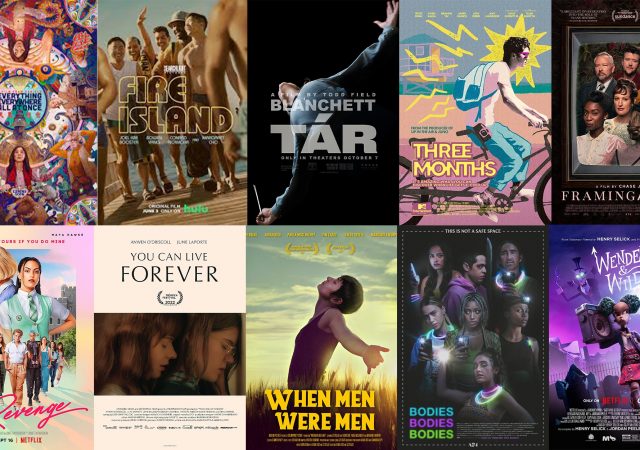2023 has truly been a great year for LGBTQ+ representation in media. From movies like “Bottoms” to TV shows like “Heartstopper” and “Good Omens,” we are living in the very recent development of what Them calls “a golden era for LGBTQ+ representation.”
“Glen or Glenda”: Feeling Seen Through Art
“Glen or Glenda” is a 1953 transgender exploitation film directed by Ed Wood. It was made incredibly cheaply and quickly and is full of out-of-date ideas and terms about gender and transitioning, with film critic Leonard Maltin describing it in his 2004 movie & video guide as “possibly the worst movie ever made.” That being said, as a transgender woman, I have never felt more seen while watching a film than while watching “Glen or Glenda.” The movie’s critical panning has held it from the fruitful examination it deserves due to its radical stance on gender as it relates to the self and society.
Araki and the Apocalypse
It’s not every day that your new gay crush climbs through your window, confesses their love, and then promptly explodes in a shower of blood “Alien” style, leaving behind a cockroach-like extraterrestrial. But it happens in Gregg Araki’s surrealist sextravaganza “Nowhere.”
Being My Mother’s Son: A Review of Queer Korean Documentary “Coming to You”
On May 5, 2023, UCLA screened “Coming to You” (“한글: 너에게 가는 길”) directed by Gyu-ri Byun (she/her), a groundbreaking Korean documentary about the mothers of queer adults in Korea. The documentary centers on the mothers, Nabi (she/her) and Vivian (she/her), who are members of PFLAG Korea (Parents, Families and Allies of LGBTAIQ+ People in Korea). Both women are cisgender and heterosexual. Prior to their children coming out to them, they held little to no knowledge about the queer community and harbored discriminatory opinions about queerness. Nonetheless, the documentary made no excuses for their past queerphobia and followed their journeys into wholehearted queer activism.
Queers Kill Cats, Too: A Review of “Gummo”
Harmony Korine’s 1997 directorial debut “Gummo” is one of those movies that gets swallowed up by its own images. More than any plot event, people remember “Gummo” for the bathtub spaghetti scene, the Bunny Boy’s hat, and the unique shape of Jacob Reynold’s head as Solomon on the film’s box art. This is strange, though, considering that the film itself aspires to be so much more. Revisiting “Gummo,” it reads as an attempt to address as many social and political issues as possible by slotting them into the film’s Midwestern setting. Over the course of its runtime, “Gummo” explores themes ranging from sexual assault to racism to misogyny to ableism and eventually to homophobia, transphobia, and beyond, all to wildly varying degrees of success.
Best of 2022: Staff Picks for Queer Film
Enjoy our staff’s recommendations for queer films and films with queer representation released in 2022 (in no particular order)!
Subverting the Queer Coming-of-Age Film: A Review of “When Men Were Men”
“When Men Were Men” follows a young transmasculine person grappling with his existence in his rural Irish Catholic hometown.
In The Mirror: A Review of “Homebody”
“Homebody” is a new film written and directed by Joseph Sackett that follows a young boy, Johnny, when he body swaps with his babysitter, Melanie. Coming in at only an hour and 15 minutes, “Homebody” packs in a storyline ripe with self-discovery.






























